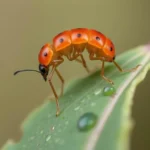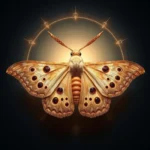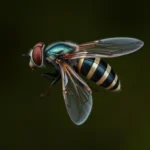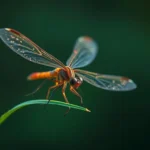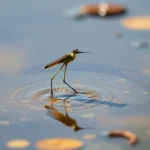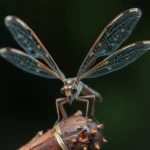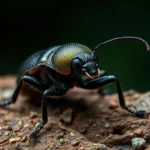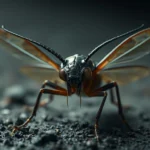Yellowjacket Yellow Jacket Symbolism and Spirit Animal
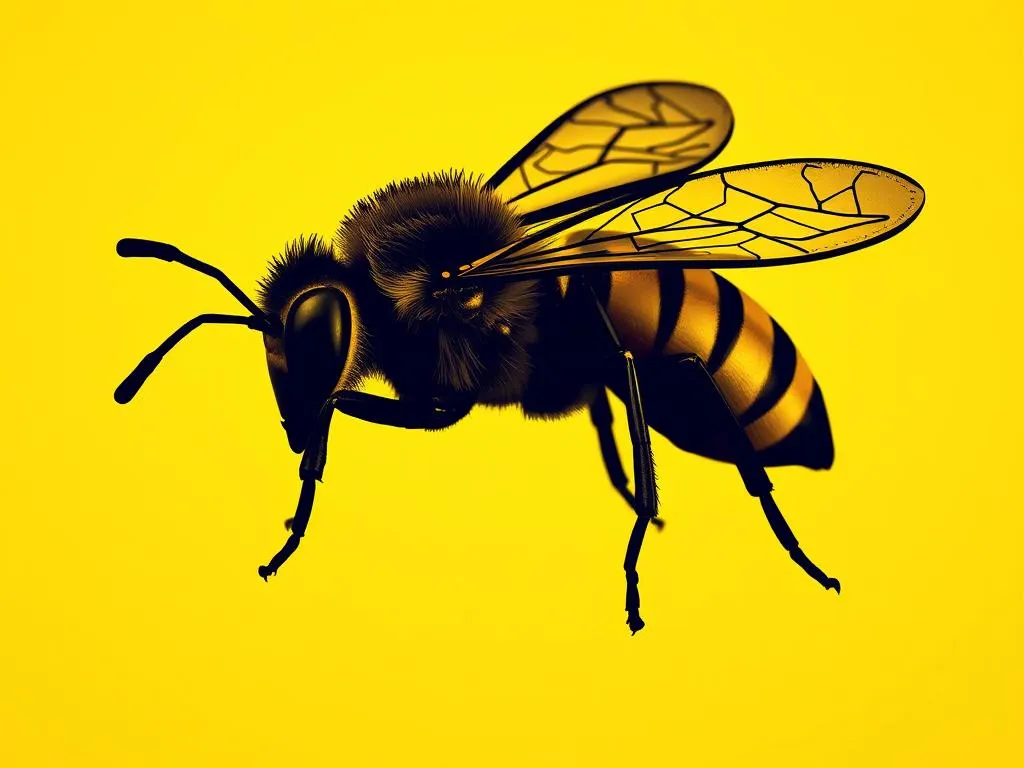
Disclaimer: Some images on this website are AI-generated artworks and may not accurately represent real animals.
The yellowjacket—an insect often misunderstood—carries a wealth of symbolism and meaning that can enrich our understanding of ourselves and our relationships with the world around us. This article delves deeply into the realm of the yellow jacket symbolism and its significance as a spirit animal, exploring its physical characteristics, lifecycle, and the lessons it imparts through its dual nature.
Understanding the Yellowjacket
Physical Characteristics
Yellowjackets are easily identifiable with their striking appearance. Here’s a quick overview of their key physical traits:
| Characteristic | Description |
|---|---|
| Size | Approximately 0.5 to 0.75 inches long |
| Color | Bright yellow and black stripes |
| Body Shape | Slim, elongated body |
| Wings | Two pairs of membranous wings |
| Antennae | Long, slender antennae |
These insects are agile flyers and are often seen darting around at picnics or near food sources, making them both fascinating and, at times, a nuisance.
Lifecycle and Social Structure
The lifecycle of the yellowjacket follows a fascinating pattern, primarily revolving around a colony’s social structure. Each colony starts with a fertilized queen, who emerges from hibernation in spring. Her primary role is to establish a new nest and lay eggs.
In the yellowjacket colony, roles are distinct:
– Queen: The sole egg-laying female responsible for the colony’s continuation.
– Workers: Sterile females that forage for food, maintain the nest, and care for the young.
– Drones: Males who exist solely to mate with the queen before dying shortly after.
The lifecycle consists of several stages, including egg, larva, pupa, and adult. Each phase plays a crucial role in maintaining the colony’s health and success.
Behavioral Traits
Yellowjackets are known for their aggressiveness—especially when they feel threatened. This behavior is rooted in their instinct to protect their nest and queen. However, they are also important foraging insects, scavenging for protein-rich food to feed their larvae.
Their role in the ecosystem cannot be understated. Yellowjackets assist in pollination and help control pest populations, proving that even the most aggressive creatures can have beneficial roles in nature.
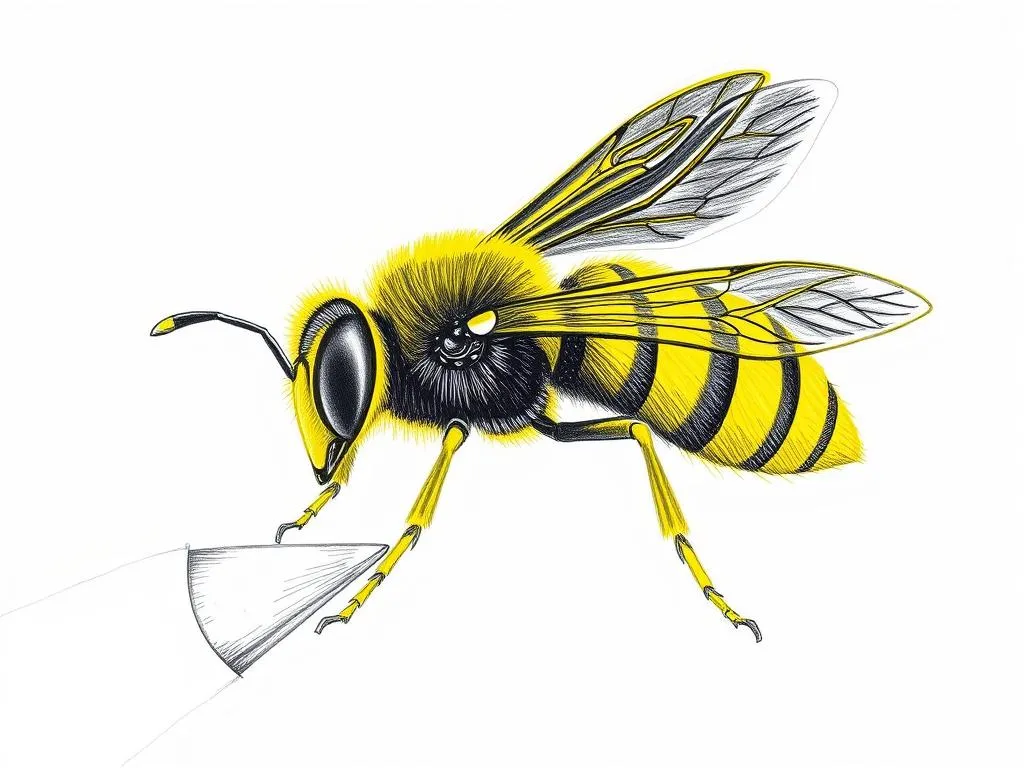
Symbolism & Spiritual Meaning
Dual Nature
The yellow jacket symbolism embodies a dual nature that encompasses both aggression and loyalty. On one hand, yellowjackets are known for their fierce defense of their territory, which can symbolize the need for setting personal boundaries. On the other hand, their commitment to their colony reflects loyalty, teamwork, and dedication to the greater good.
This balance serves as an important reminder that while it is essential to stand firm and protect oneself, there is also great power in collaboration and community.
Transformation and Rebirth
In many cultures, yellowjackets symbolize transformation and rebirth. Their lifecycle—from egg to larva to adult—mirrors the journey of personal growth and change. This transformation signifies adaptability and resilience, encouraging individuals to embrace change as a way to evolve.
The yellowjacket teaches us that embracing transformation can lead to new beginnings, fostering a sense of renewal in our lives.
Community and Cooperation
The social structure of yellowjacket colonies highlights the importance of community and cooperation. Each member plays a vital role in ensuring the colony’s survival, which mirrors the dynamics of human relationships.
This symbolism invites us to reflect on our own connections and the importance of teamwork in our personal and professional lives. It encourages us to recognize that our successes and challenges are often shared experiences, underscoring the value of collaboration.
Warning and Protection
Yellowjackets also serve as symbols of warning and protection. Their aggressive nature can be a reminder to remain vigilant and cautious in our lives. In this sense, they represent the need to establish boundaries and protect our personal space.
This aspect of yellowjacket symbolism encourages individuals to listen to their instincts and recognize the importance of safeguarding their emotional and physical wellbeing.
Yellowjacket in Dreams
Interpretation of Appearances
Dreaming of yellowjackets can evoke a variety of emotions and interpretations. Their appearance in dreams often signifies:
– Conflict: Potential disputes or tensions in waking life.
– Boundaries: The need to reinforce personal limits.
– Community: Reflection on social dynamics and relationships.
Emotional Resonance
The emotional resonance during the dream plays a significant role in its interpretation. If one feels fear or anxiety, it may reflect underlying issues that require attention. Conversely, feelings of curiosity or fascination can indicate a readiness to confront challenges or explore new experiences.
Connections to Personal Life
Dreams involving yellowjackets may also reflect current challenges or social dynamics. For example, if you are facing a conflict at work or in a relationship, the yellowjacket may symbolize the need to confront these issues directly.
| Dream Element | Possible Interpretation |
|---|---|
| Swarming yellowjackets | Overwhelming feelings or stress |
| Being stung | Feelings of vulnerability or betrayal |
| Observing yellowjackets | Reflection on social interactions |
Understanding these interpretations can provide insight into personal struggles or dynamics, allowing for introspection and growth.
Modern Interpretations
Cultural References
Yellowjackets have made their mark in folklore and modern literature as symbols of various themes. In some cultures, they are seen as harbingers of change, while in others, they represent the darker aspects of nature—aggression and danger.
Through stories and myths, yellowjackets often embody the complexities of life, serving as reminders of both the beauty and the peril that coexist in our world.
Symbol of Power and Challenge
In contemporary contexts, yellowjackets can symbolize both power and challenge. Their fierce nature evokes feelings of empowerment, encouraging individuals to harness their strength and assertiveness. Yet, they can also represent obstacles that need to be faced head-on, urging us to confront our fears and adversities.
This dual symbolism allows for a nuanced understanding of the challenges we encounter, highlighting that overcoming them often leads to growth and empowerment.
Environmental Considerations
The perception of yellowjackets has evolved due to increasing awareness of their ecological roles. As pollinators, they contribute to biodiversity and the health of ecosystems. Understanding their importance can shift our mindset from viewing them solely as pests to recognizing their contributions to the environment.
This change in perception underscores the significance of all creatures in maintaining ecological balance and the need to respect nature’s intricate web of life.
Key Takeaways
- The yellowjacket embodies a balance of aggression and community, teaching us about the importance of setting boundaries while valuing teamwork.
- Its symbolism of transformation and rebirth encourages adaptability and resilience in the face of change.
- The social structure of yellowjackets highlights the significance of community and cooperation in personal growth and relationships.
- Yellowjackets serve as a warning and protection, reminding us to remain vigilant and establish personal boundaries.
Conclusion
The multifaceted symbolism of the yellowjacket offers valuable insights into our lives. Its lessons about resilience, community, and boundaries encourage us to reflect on our connections with others and ourselves. By embracing the teachings of the yellowjacket, we can navigate the complexities of life with greater awareness and strength.
As we consider the presence of yellowjackets in our lives, may we draw inspiration from their transformative journey and the powerful symbolism they represent. Their legacy as spirit animals reminds us of the delicate balance between aggression and loyalty, urging us to respect both our own boundaries and the intricate web of life that surrounds us.
